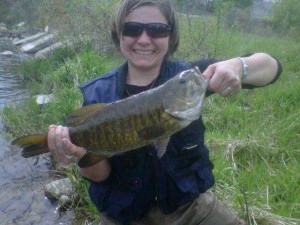 As Thanksgiving approaches in Canada, I began to ponder exactly what has been researched in regards to thankfulness, specifically, what health benefits could be obtained from being thankful. In my search for the answer, I stumbled across a resource that summed up a significant amount of research that detailed how being thankful can not only benefit yourself but others. As a result, this article is based on the following resource (as well as several others): http://ccn.aacnjournals.org/content/29/6/12.full. This blog acts as a summary for you, my readers, on why gratitude should not only be practiced once a year, but should be practiced on a daily/weekly basis. By adopting a routine of giving gratitude and being thankful, one can hope to achieve the following health benefits:
As Thanksgiving approaches in Canada, I began to ponder exactly what has been researched in regards to thankfulness, specifically, what health benefits could be obtained from being thankful. In my search for the answer, I stumbled across a resource that summed up a significant amount of research that detailed how being thankful can not only benefit yourself but others. As a result, this article is based on the following resource (as well as several others): http://ccn.aacnjournals.org/content/29/6/12.full. This blog acts as a summary for you, my readers, on why gratitude should not only be practiced once a year, but should be practiced on a daily/weekly basis. By adopting a routine of giving gratitude and being thankful, one can hope to achieve the following health benefits:
- Increased ability to achieve life goals.
The research has shown that those who are thankful and express this gratitude on a regular basis, are more likely to achieve their personal goals (and feel loved while doing it!).
- Increased happiness
Not surprisingly, those who were more grateful were more likely to report increased happiness, optimism, and life satisfaction. The gratitude these individuals expressed caused them to have happiness increase by 25%, which lasted up to and beyond 6 months. Subsequently, these individuals were less likely to report stress, and depression, and were more capable of extracting joy out of life experiences, regardless of what they were.
- Strengthened and built relationships
Not only did being thankful strengthen relationships that already existed, but it also initiated relationships being built in one study. The gratitude that was expressed causes those around you to feel more loved and cared for, as well as encouraged an overall appreciation of life. It also allowed individuals to demonstrate their appreciation for one another by interacting with them better and devoting more time to them. Overall, this had an impact on relationships by encouraging new ones to be formed, as well as strengthen already existent ones.
- Improve overall physical health
Overall, the research on individuals who are thankful shows that these individuals tend to participate in more activities that benefit health, such as regular exercise, healthy diet, and regular check-ups with their medical doctor. In addition to these healthy lifestyle habits, these individuals also demonstrated increased alertness, vitality, enthusiasm, determination, and energy. These individuals also experienced longer and better quality of sleep, increased immunity (whether sick or healthy), and fewer physical symptoms (such as headaches, coughs, nausea, or pain).
Now that we know what being thankful can do for our health, one needs to know how one can adopt this gratitude mindset. This can be easily achieved by writing out 3 things that you are thankful for. Others may choose to outwardly express gratitude towards others whenever they can. Choose what suits you best, and go from there. I challenge you to try and conduct a gratitude exercise of your choice every day and see how it benefits you.
Have you benefitted from reading this blog? Know someone that would benefit as well? Share, Like, Comment, or Tweet this article, and let me know what you think.
Some of the information provided above may not be appropriate for everyone, please consult with your doctor before trying any of the above. If you are interested in Naturopathic Medicine and wanting a different approach to your health care needs, please book an appointment with Elisha Cook at the RSNC (416-498-9763), and let me help you achieve your health goals.


